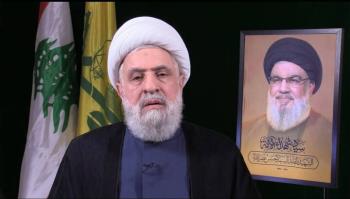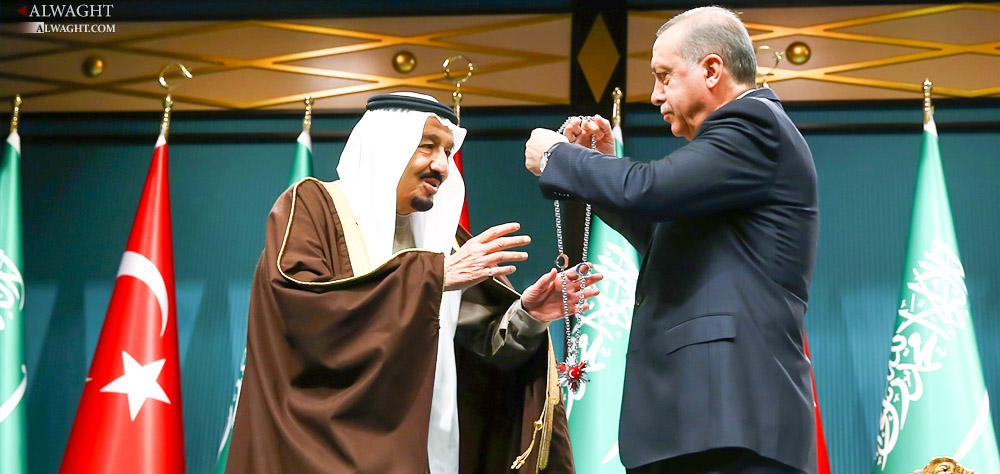Alwaght- Riyadh’s policy-making has long been dependent on the petrodollar. After Egypt, Saudi King Salman Bin Abdulazziz went to Turkey where he will most likely attempt to bribe Ankara into engaging in regional crises more actively.
While Salman and Turkish President Recep Tayyip Erdogan have much in common they are divided by even deeper differences. However, that will not stop the royal visitor from trying to further involve the Turks in the quagmire of the region.
Authorities of Saudi Arabia and Turkey both want to oust Syrian President Bashar Assad and are involved in the proliferation of terrorism in the country. Another feature that joins the two is their animosity toward Iran. Turkey is clearly sympathetic with the Saudis in their rivalry with Tehran for regional power.
At the same time, the two sides are separated by ideological and political differences mainly pertaining to Erdogan’s Justice and Development Party which is the Turkish branch of the Muslim Brotherhood.
Regardless of this, Riyadh looks keen to momentarily overlook these difference to achieve its most pressing concern. The Saudi regime has been trying to undermine the axis of resistance in the region by creating new alliances such as the one it is using to bomb Yemen.
Tensions between the Saudi regime on one hand and Iran, Syria, and Hezbollah on the other have spiked throughout the past year. Syria’s grievances have been addressed with Riyadh being blamed for funding extremist groups for the purpose of toppling Assad. As for Iran, ties between the two countries worsened after Saudi negligence caused the death of thousands of pilgrims including Iranians. Hezbollah has also taken a defensive stance against Saudi’s increasingly aggressive behaviour.
The Turkish government, likewise, has supported extremist groups in Syria in a bid to topple Assad.
A research team in Columbia University’s Program on Peace-building and Rights revealed even a report ‘drawing on a variety of international sources — The New York Times, The Washington Post, The Guardian, The Daily Mail, BBC, Sky News, as well as Turkish sources, CNN Turk, Hurriyet Daily News, Taraf, Cumhuriyet, and Radikal among others which indicate Turkey’s involvement in supporting militant groups against the Syrian regime including al-Nusra front and ISIS’.
That’s why Ankara would gladly accept financial aid from Riyadh. It is after all a way to secure its pivotal role in the region.
Yet, Turkey has an internal public to consider, the majority of which is against their government’s policy toward the Syrian crisis. This may prove to be a hindrance in the future.
But whether or not Salman succeeds in further instigating Turkey against the axis of resistance, it all comes down to this question: will the Saudi regime achieve a goal that even the US and its allies were unable to attain?
The main obstacle these two states face is the presence of gaps that cannot be bridged by a simple visit or financial support, rather these initiatives can only create temporary coalitions to attain objectives in the short-run. Aware of this actuality, the Saudi regime and Turkey are now resorting to every means possible, including cooperating with the Israelis, to achieve their aims.



























